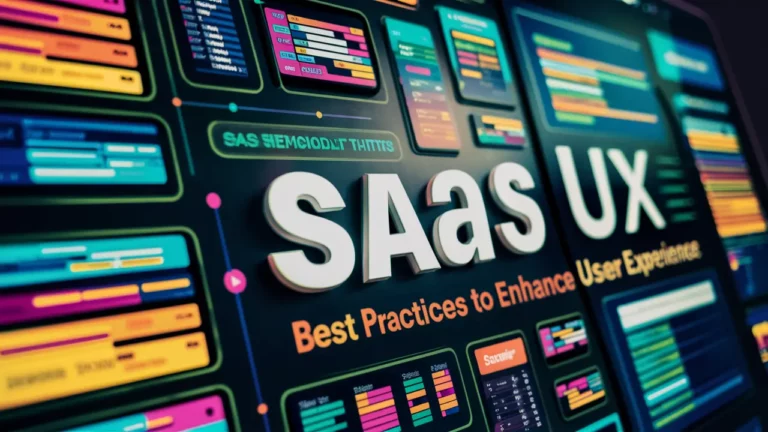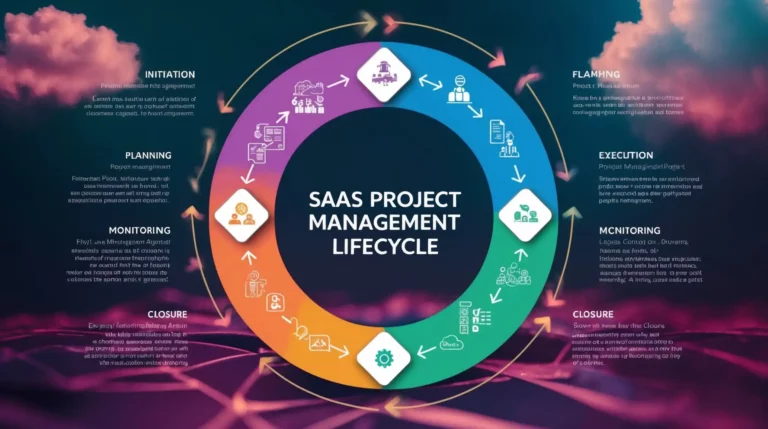Saas Compliance Mastery: Frameworks for Saas Companies

Software, as a Service (SaaS) companies operate in a digital l, and service organization control audits, are crucial for ensuring SAAS compliance and adhering to data security standards. Scape that requires stringent adherence to regulatory standards. Service organizations must understand SaaS compliance strategies to ensure data security and meet legal requirements. It is a critical aspect of SaaS security. It is crucial for the success and sustainability of any SaaS provider. It involves ensuring that a company’s operations meet the necessary compliance requirements regarding data protection and information security management systems, as well as data security and privacy compliance.
Our audience supports Ahcrypto. When you click on the links on our site, we may earn an affiliate commission at no extra cost to you. Learn More.
Key Takeaways
Understanding SaaS Compliance
SaaS compliance refers to the processes and practices that SAAS companies must implement to meet compliance requirements and adhere to relevant laws and regulations governing the handling and protection of customer data. It encompasses a range of areas, including compliance management, security compliance, and data privacy, often supported by specialized SaaS compliance software. Failure to achieve compliance can result in severe consequences, including fines, legal actions, and damage to a company’s reputation due to non-adherence to security and compliance norms.
Stay Updated with the Latest Digital Marketing Tips!
Subscribe to our newsletter and receive our exclusive guide, “Top 10 Digital Marketing Strategies for Success,” straight to your inbox
Importance of SaaS Compliance
The importance of SAAS compliance cannot be overstated. It protects sensitive personal data and compliance efforts, and fosters trust with customers and partners. Implementing robust security and compliance measures and frameworks and following best practices such as the General Data Protection Regulation (GDPR) and the Health Insurance Portability and Accountability Act (HIPAA) promotes an organization’s compliance culture.
Types of SaaS Compliance
Companies need to consider various types of SaaS compliance, including the legal requirements for a comprehensive compliance program. These include financial compliance, regulatory compliance, and information security management. Each type focuses on different aspects of compliance and security to ensure that SaaS applications adhere to the compliance standard required by law.
Compliance Frameworks for SaaS Companies

A robust compliance framework ensures SaaS compliance in the highly regulated software-as-a-service environment. This framework serves as a roadmap for SaaS companies to navigate the intricate data protection and security landscape. SaaS providers mitigate risks and build customer trust by adhering to established compliance requirements and safeguarding sensitive data.
Compliance Checklist
Developing a comprehensive compliance checklist is a vital step for every SaaS business. This checklist should encompass all aspects of SAAS compliance, including compliance management, security compliance, and data privacy. By outlining specific guidelines and protocols, the compliance checklist ensures that all necessary measures are in place to meet regulatory standards and protect customers daily effectively.
Best Practices for SaaS Compliance
Ensuring SAAS compliance goes beyond just meeting the basic requirements; it also entails following best practices in the industry. Practices like GDPR and HIPAA demonstrate a commitment to compliance efforts and foster a culture of compliance within the organization. By implementing these SAAS solutions best practices, SAAS companies can enhance their reputation and build stronger relationships with customers and partners.
Audit for SaaS Companies
Conducting regular audits is a critical component of maintaining SAAS compliance. Through audits, SAAS providers can assess their compliance standards and identify areas for improvement. Whether it’s an external or internal audit, the insights gained can help strengthen security compliance and mitigate compliance risks such as data breaches. These audits also play a crucial role in demonstrating transparency and accountability in SAAS compliance efforts.
Regulatory Laws and SaaS Compliance
Ensuring SAAS compliance is essential for SaaS companies to operate within regulatory frameworks. Adhering to laws such as the General Data Protection Regulation (GDPR) is crucial for managing data protection and ensuring privacy compliance. Compliance with regulations like the Health Insurance Portability and Accountability Act (HIPAA) is necessary for SaaS providers handling customer data.
GDPR and Data Protection
The GDPR sets the standard for data protection laws within the European Union (EU) and beyond. SaaS companies must comply with GDPR requirements to safeguard customer data and uphold privacy rights. Implementing GDPR principles promotes transparency and accountability in data processing activities and enhances customer customers.
HIPAA Compliance for SaaS
HIPAA compliance is paramount for SaaS providers handling healthcare data. Adherence to HIPAA regulations ensures the secure handling of protected health information (PHI). SaaS companies must implement stringent data security measures to protect the sensitive health data entrusted to them.
Financial and SOC 2 Compliance
Compliance with financial regulations is crucial for SaaS companies handling payment data and transactions. Additionally, achieving SOC 2 compliance demonstrates a commitment to data security and privacy controls. Adhering to SOC 2 standards assures customers that their sensitive information is adequately protected.
Enhancing Security Compliance

Companies must be aware of the stringent data protection laws that govern their operations when it comes to enhancing security compliance in Software as a Service (SaaS). Adhering to these laws, such as the General Data Protection Regulation (GDPR) and Health Insurance Portability and Accountability Act (HIPAA), is paramount to safeguarding customer data and maintaining stakeholder trust.
Data Protection Laws
Regulatory frameworks like the GDPR and HIPAA set the bar for data protection requirements that SaaS companies must meet. The GDPR, particularly significant in the EU, emphasizes transparency in data processing, while HIPAA ensures the secure handling of healthcare data. Compliance with these laws is non-negotiable for SaaS providers dealing with sensitive data.
Security Compliance Measures
Implementing robust security compliance measures is essential for every SaaS business. This involves meeting legal obligations and going above and beyond to protect customer data and prevent breaches. By upholding compliance standards, SaaS companies demonstrate their commitment to maintaining the security and integrity of their platforms.
Compliance Management for SaaS
Effective compliance management is a cornerstone of SaaS operations. It encompasses strategies, policies, and compliance automation to ensure adherence to regulatory requirements. A dedicated compliance team is crucial in overseeing compliance efforts, identifying compliance issues, and setting compliance goals to continuously improve the organization’s SAASSAAS security posture—compliance strategies.
Every SaaS Business Needs Compliance

Compliance efforts are a fundamental aspect of operations for every SaaS business. Staying abreast of evolving compliance requirements and industry standards is essential for maintaining customers’ trust and confidence. Effective compliance policies and a strong culture of compliance are crucial for establishing a reputation as a reliable and trustworthy SaaS provider.
Compliance Efforts in the SaaS Industry
Within the SaaS industry, SAAS compliance efforts are imperative to protect customer data and maintain regulatory compliance. Companies must stay proactive in addressing compliance issues and implementing robust compliance measures to mitigate risks. A commitment to compliance safeguards sensitive data and differentiates SaaS providers in a competitive market.
Help with Saas Compliance
Seeking assistance with SaaS compliance from experts in the field can provide invaluable support to SaaS companies. Professionals can offer guidance on navigating complex compliance frameworks, implementing best practices, and conducting audits to assess compliance standards. Collaborating with specialists can streamline compliance management processes and enhance the organization’s security compliance posture.
Why SaaS Compliance is Important
The significance of SAAS compliance extends beyond meeting legal requirements—it is about upholding the integrity of customer data and fostering trust. By prioritizing compliance, SaaS companies demonstrate their commitment to data privacy and security, reputation, and industry credibility. Embracing SAAS compliance as a core value is essential for sustainable growth and success in the competitive SaaS landscape.
Keep updated on all of our latest tips here.
FAQ

Scott Evans
Hey there, I’m Scott Evans, your friendly guide at AhCrypto! I’m all about breaking down complex SaaS, AI, and tech topics into digestible insights. With me, you’re not just keeping up with the tech world; you’re staying ahead of the curve. Ready to dive into this exciting journey? Let’s get started!








